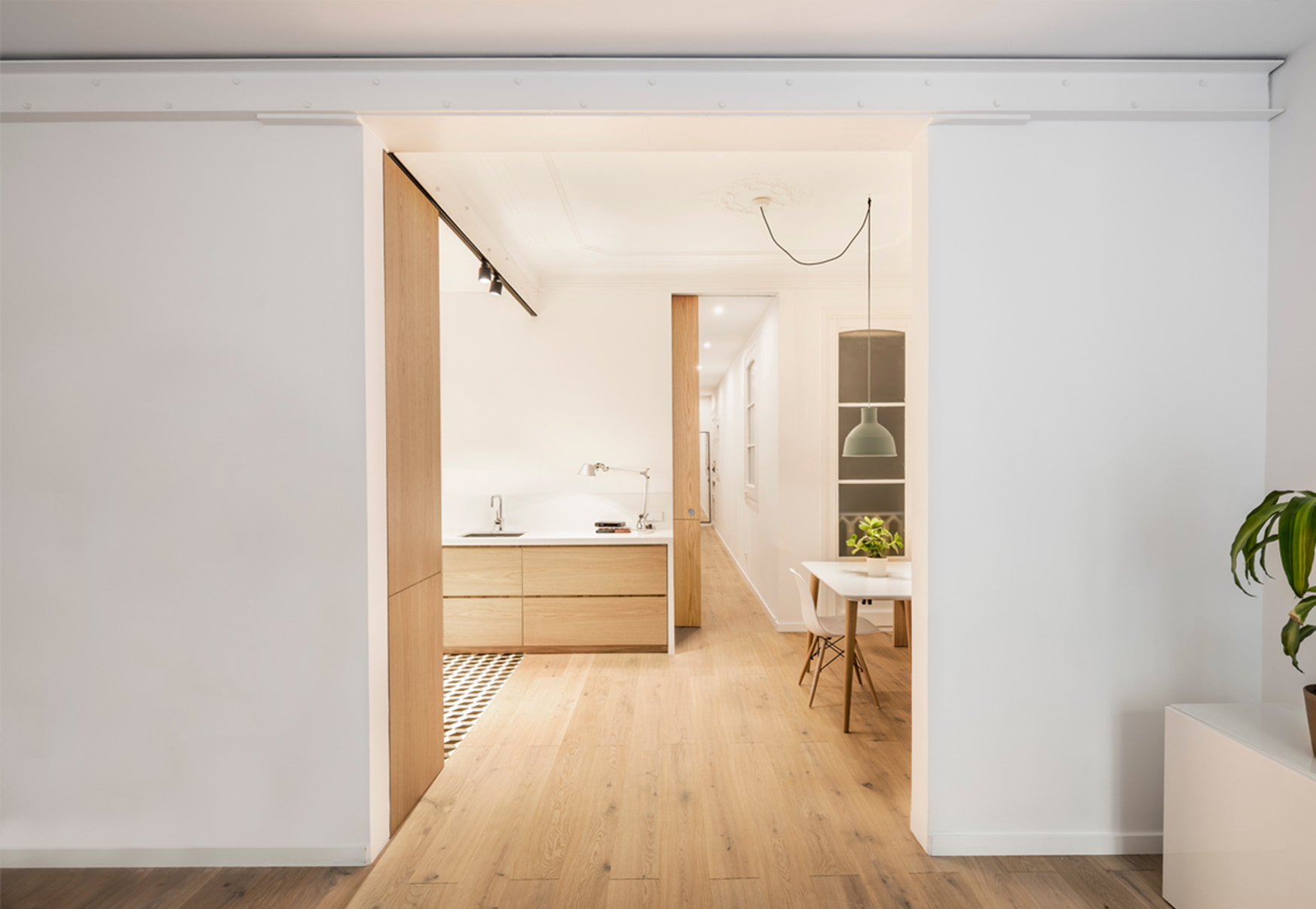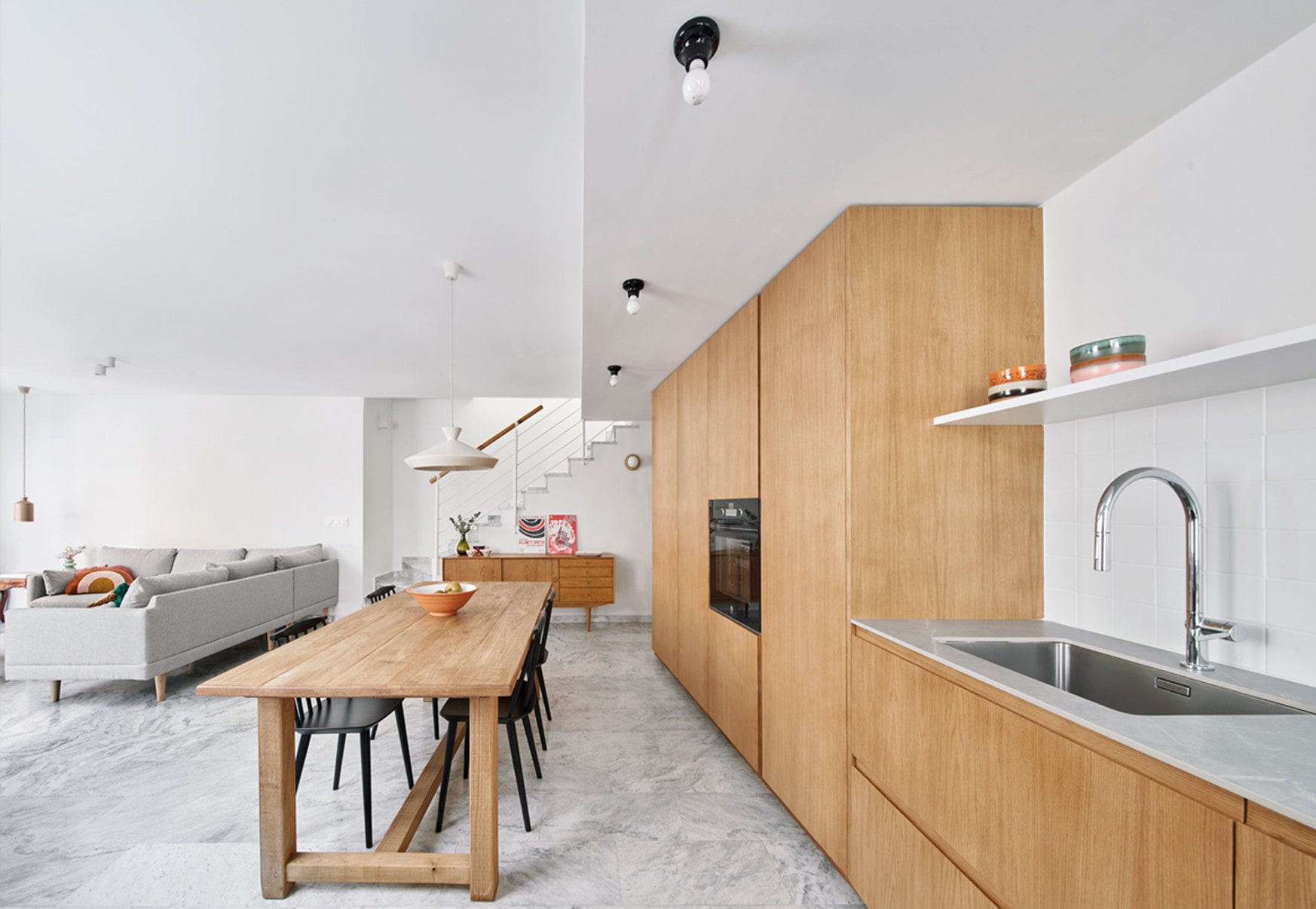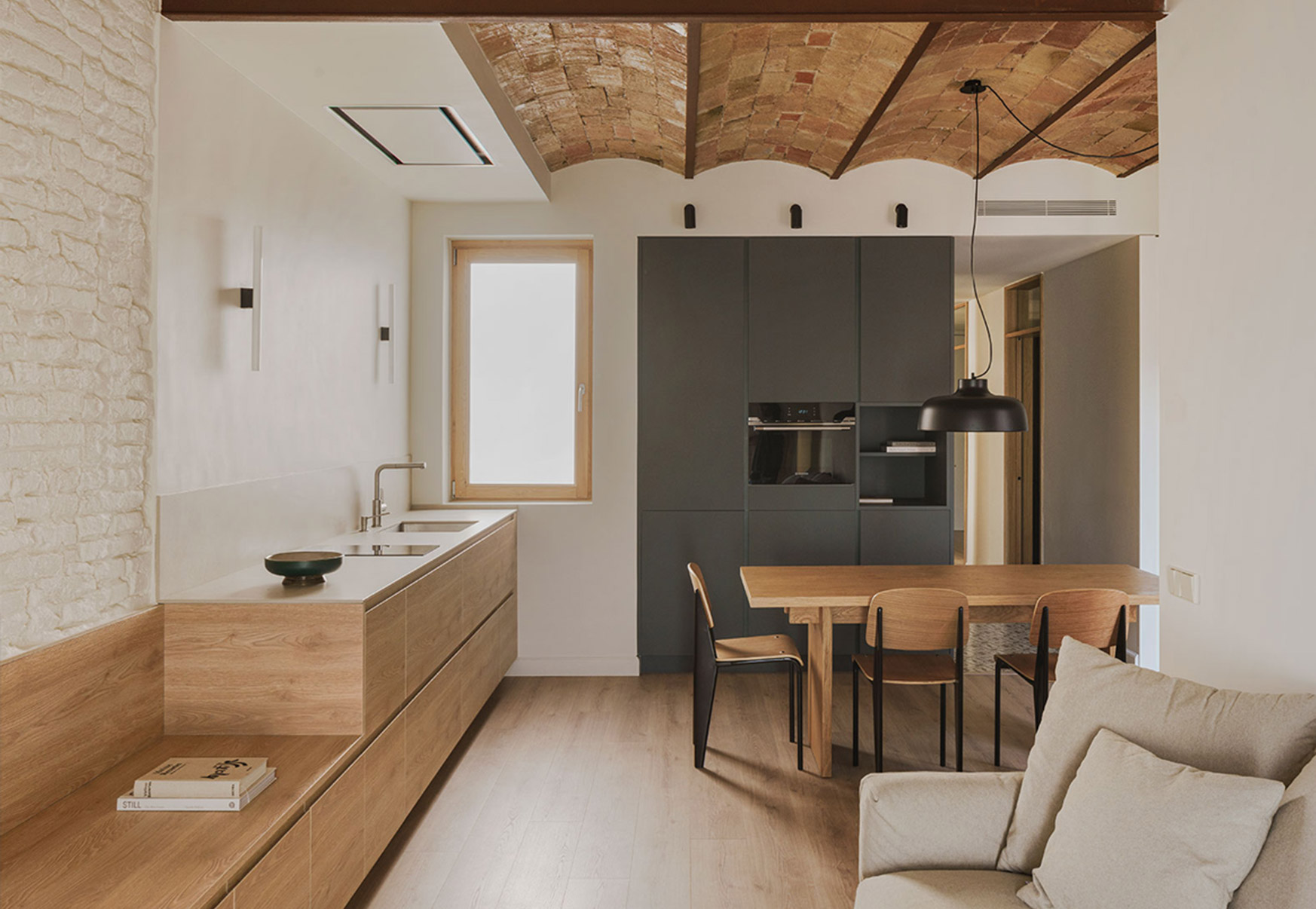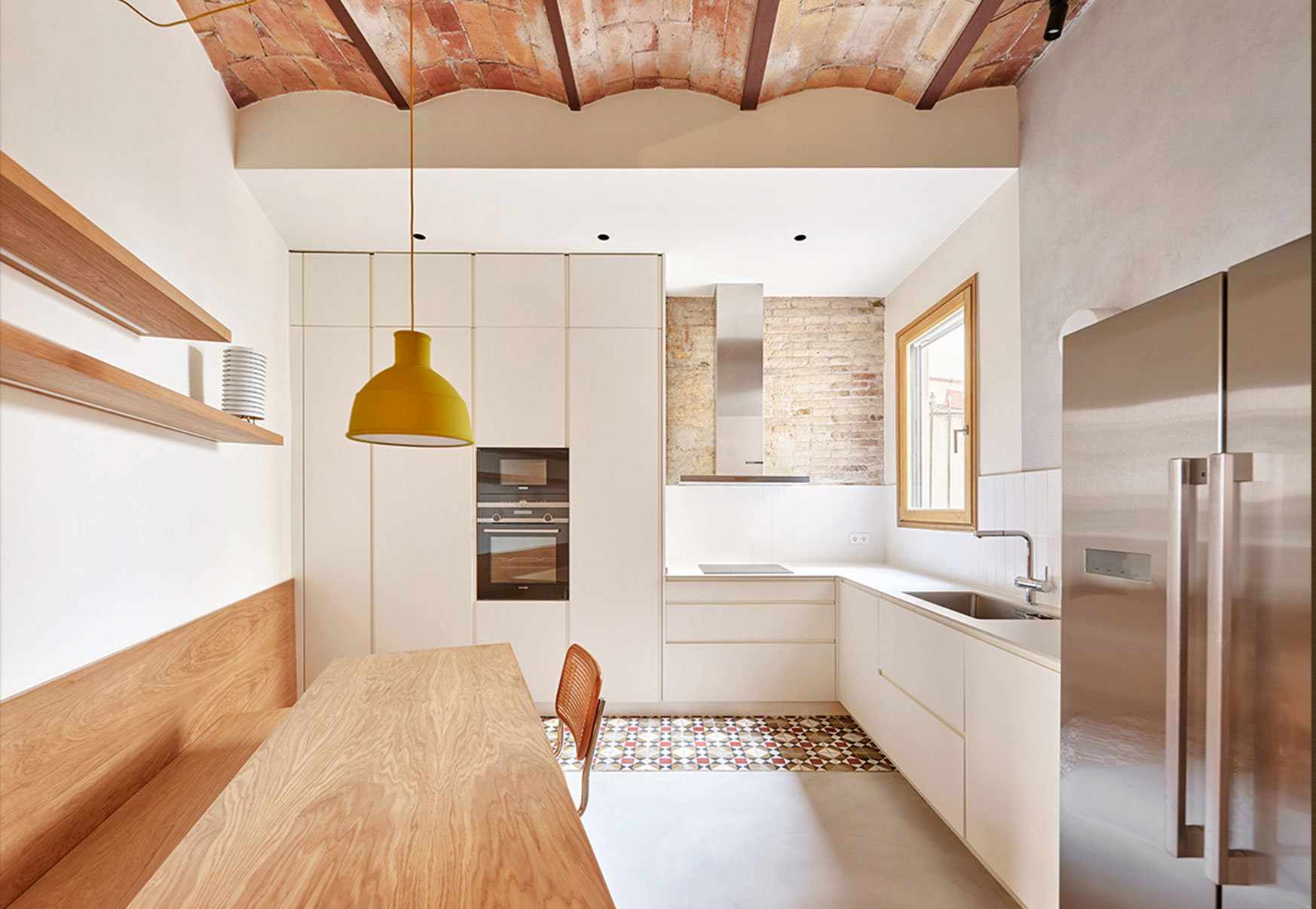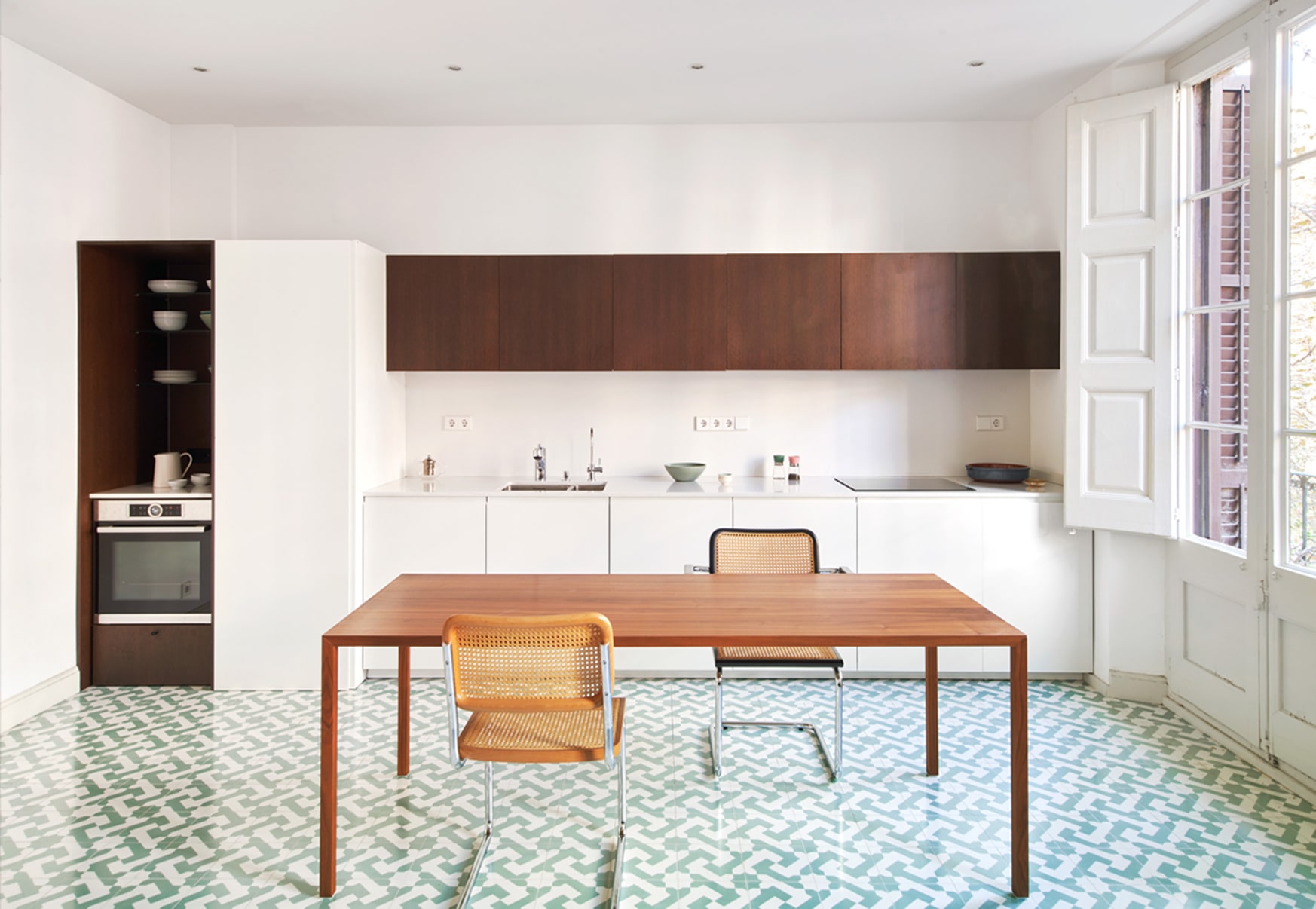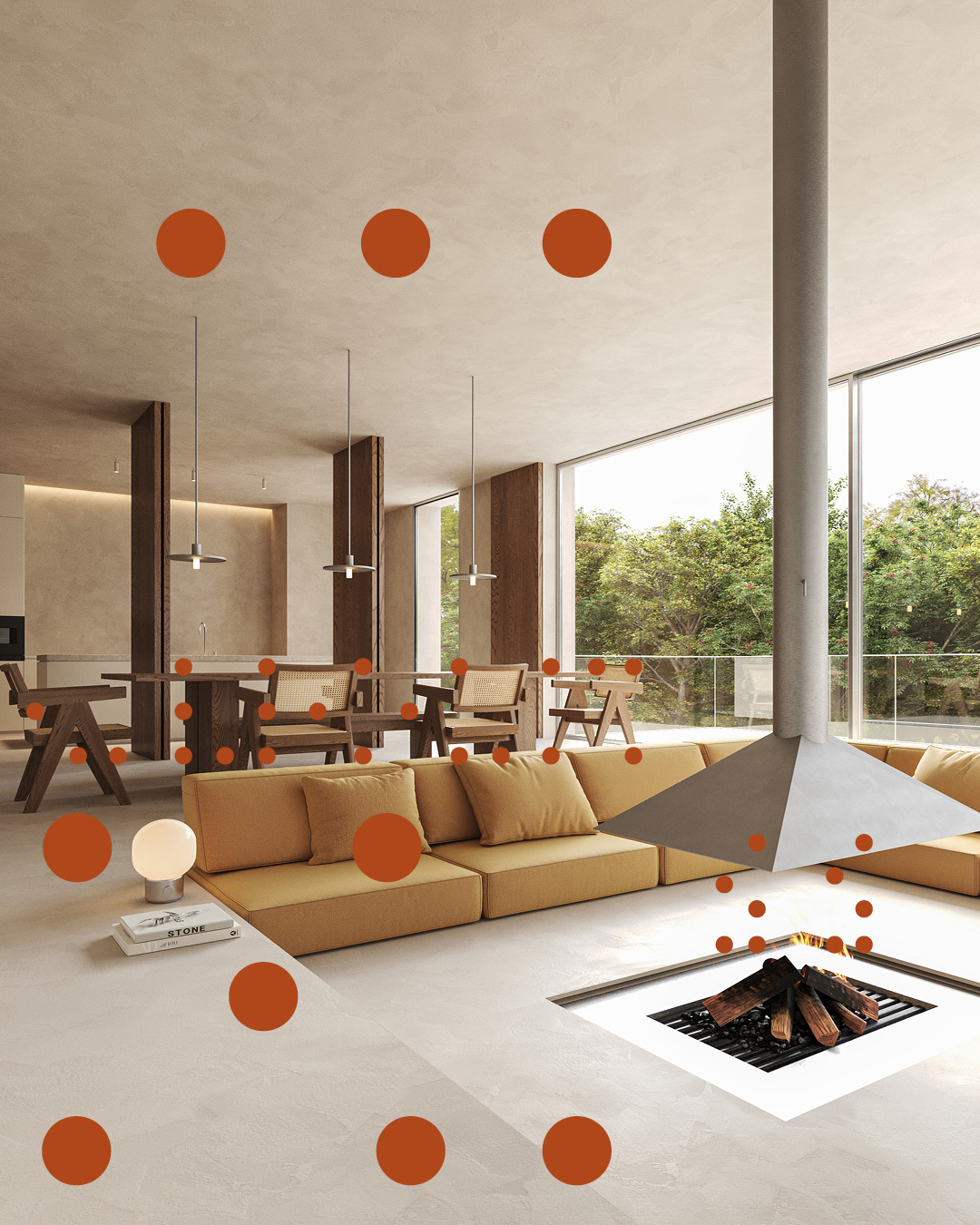
Data Report 2024
Architecture and renovations
Periodically, we conduct an analysis of the architectural projects we have completed to identify patterns and trends that can inspire our future ideas. The data is based on all projects carried out in the last five years.
Materiales
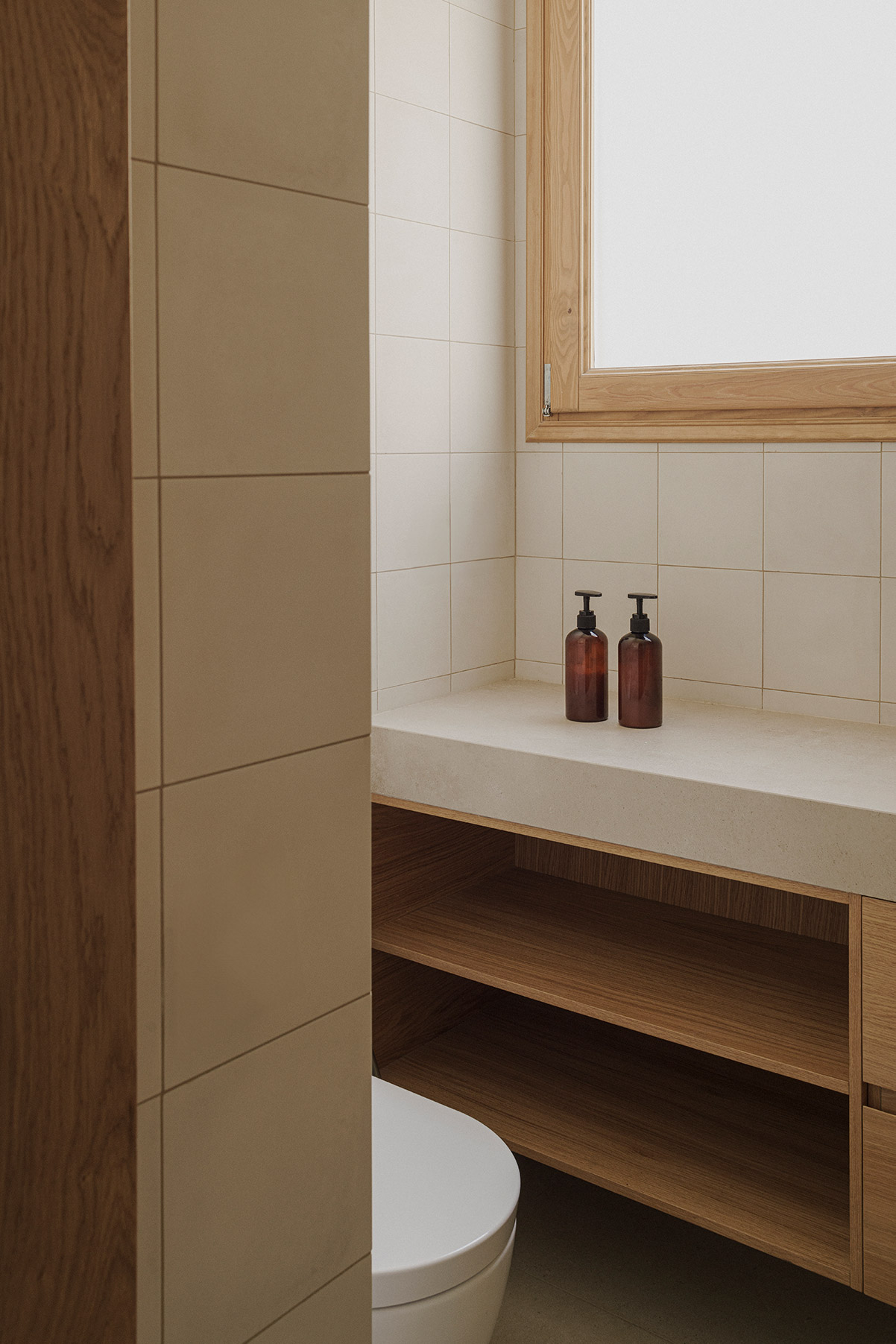
Materials
1 out of 4
projects include terrazzo in some part of the home. It is one of the most interesting trends we have seen resurge due to its versatility and customization options.
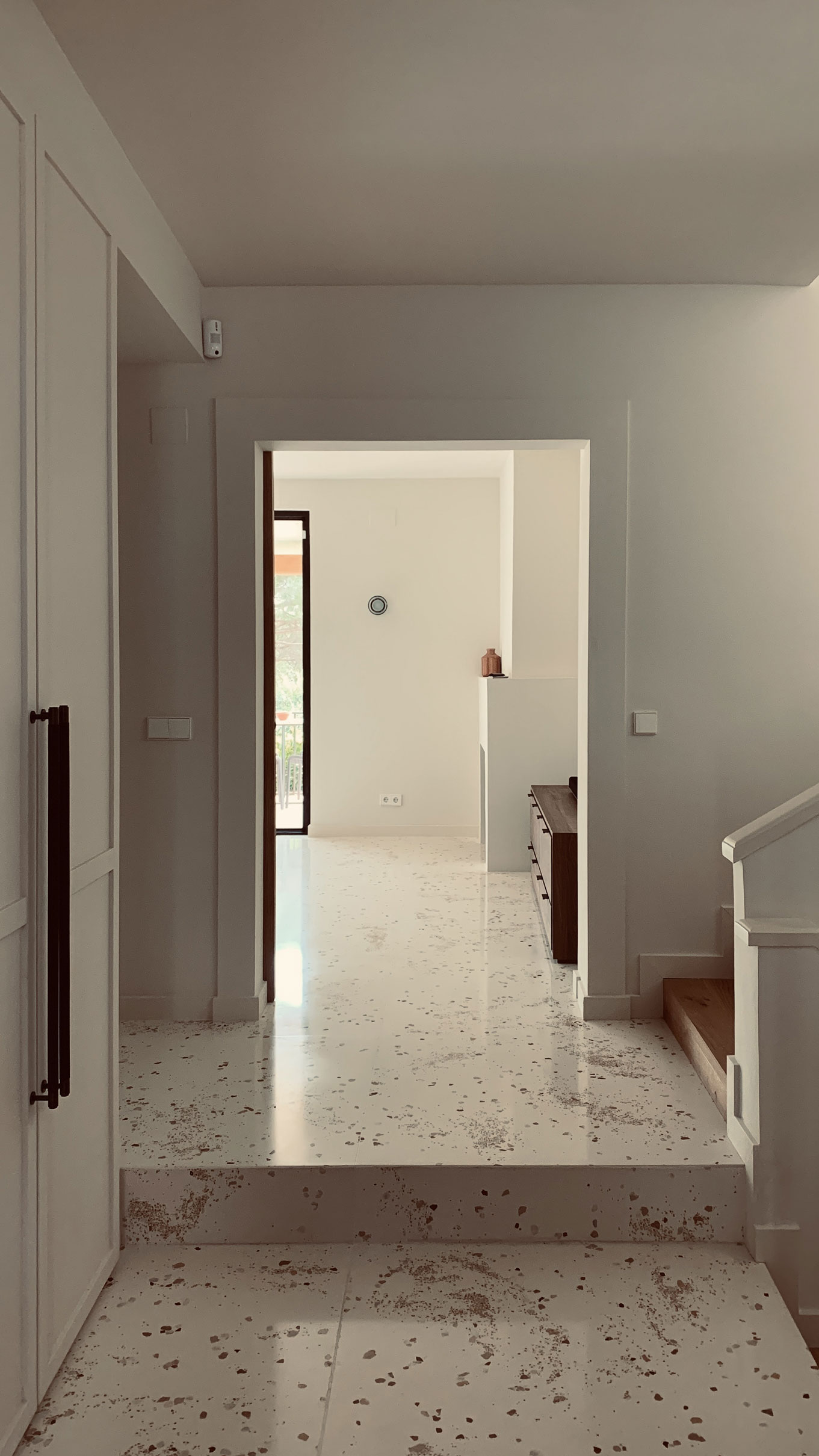
80%
projects use microcement on bathroom walls, clearly overshadowing porcelain. It is strong enough for vertical surfaces, has a minimalist look, and neatly resolves edges.
At the same time, there is a decline in the use of microcement for flooring due to its low durability.
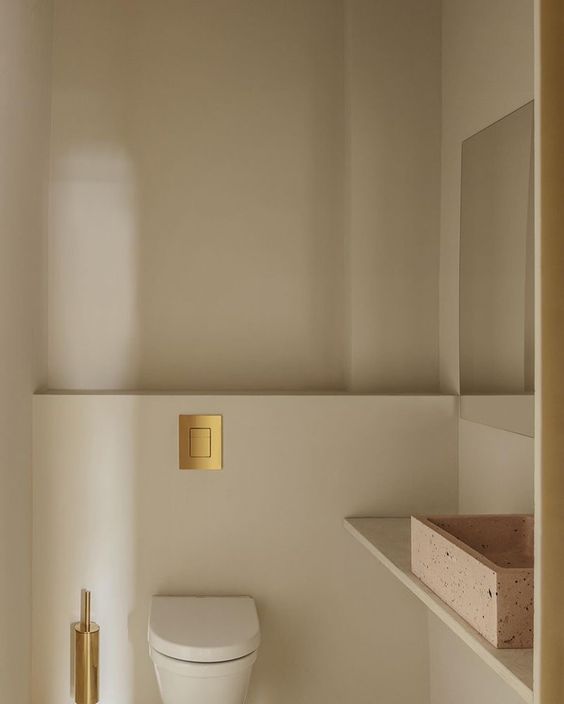
92%
projects include natural oak wood, whether in floors, furniture, doors, or windows. It remains the material of choice.
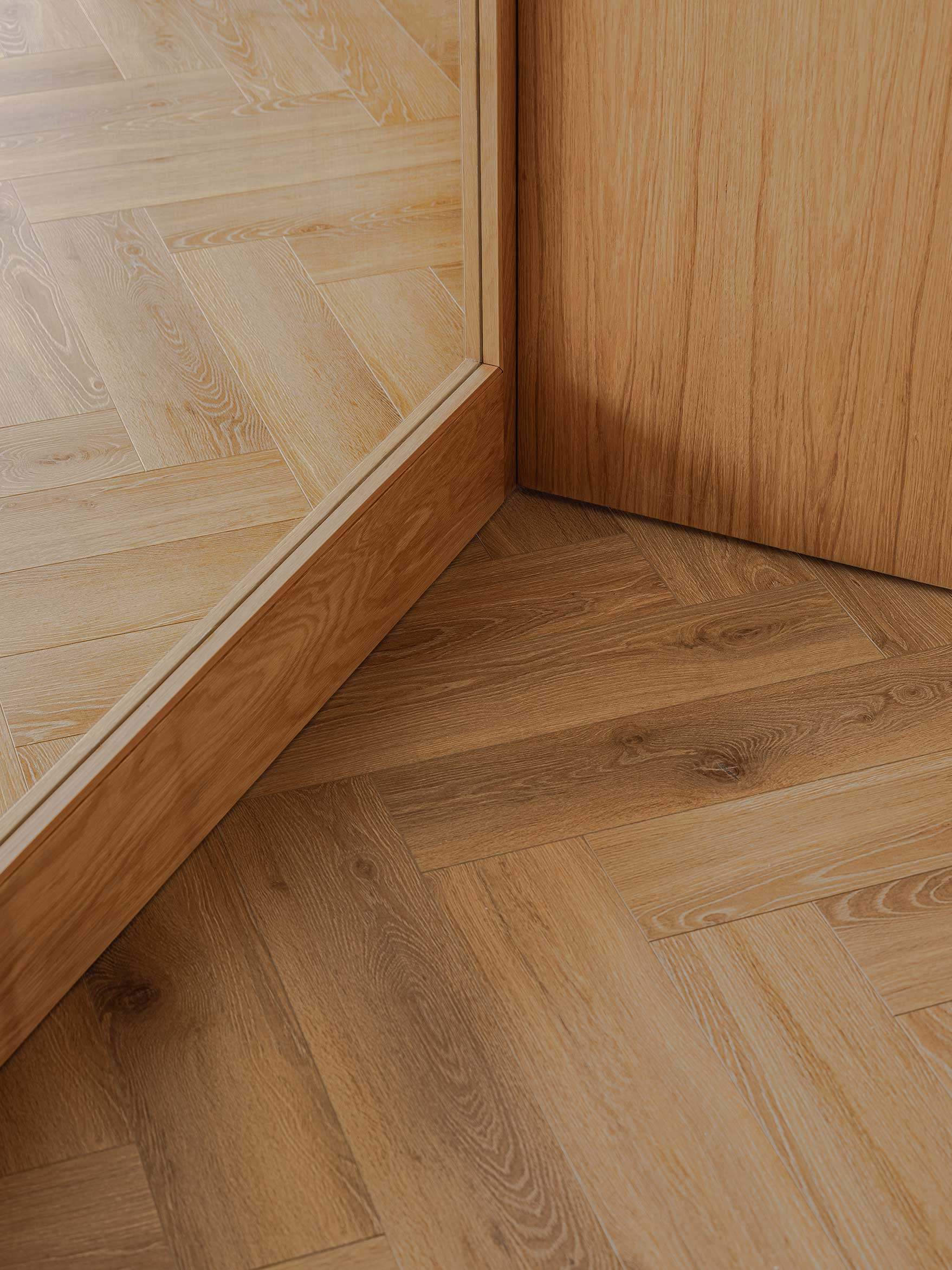
27% marble
51% porcelain countertop
More than half of the countertops installed are porcelain, due to its durability. However, the authenticity of marble is increasingly gaining prominence. Stainless steel is also used, though to a lesser extent.
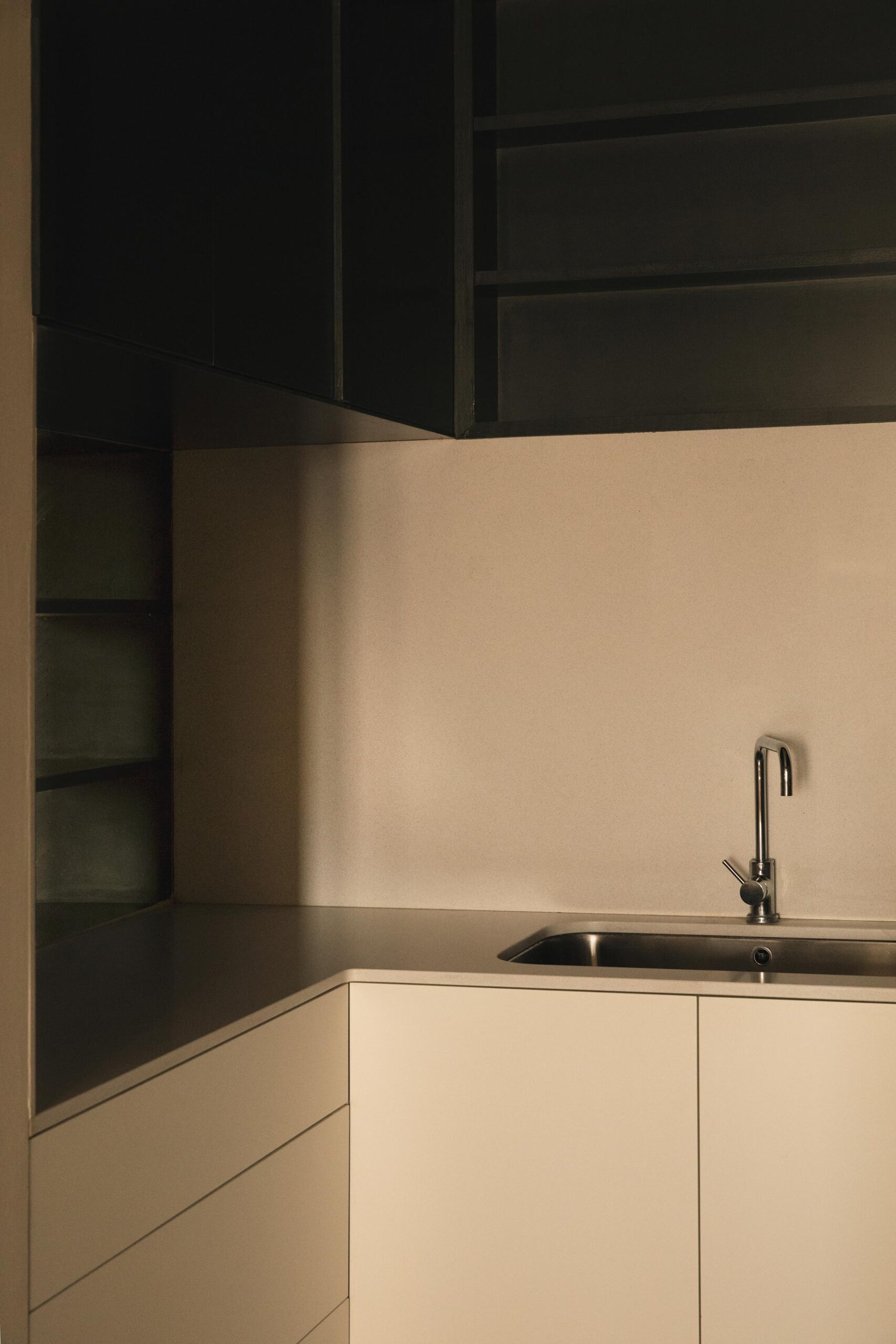
Layout
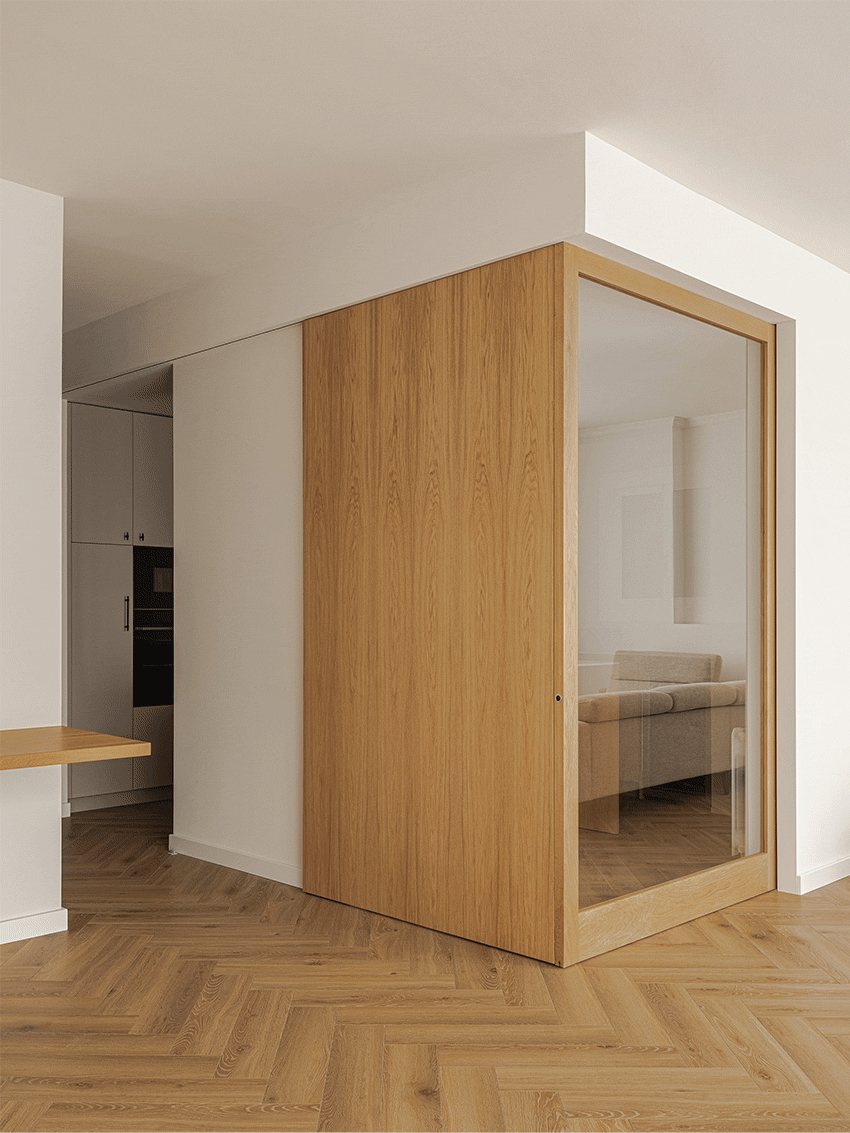
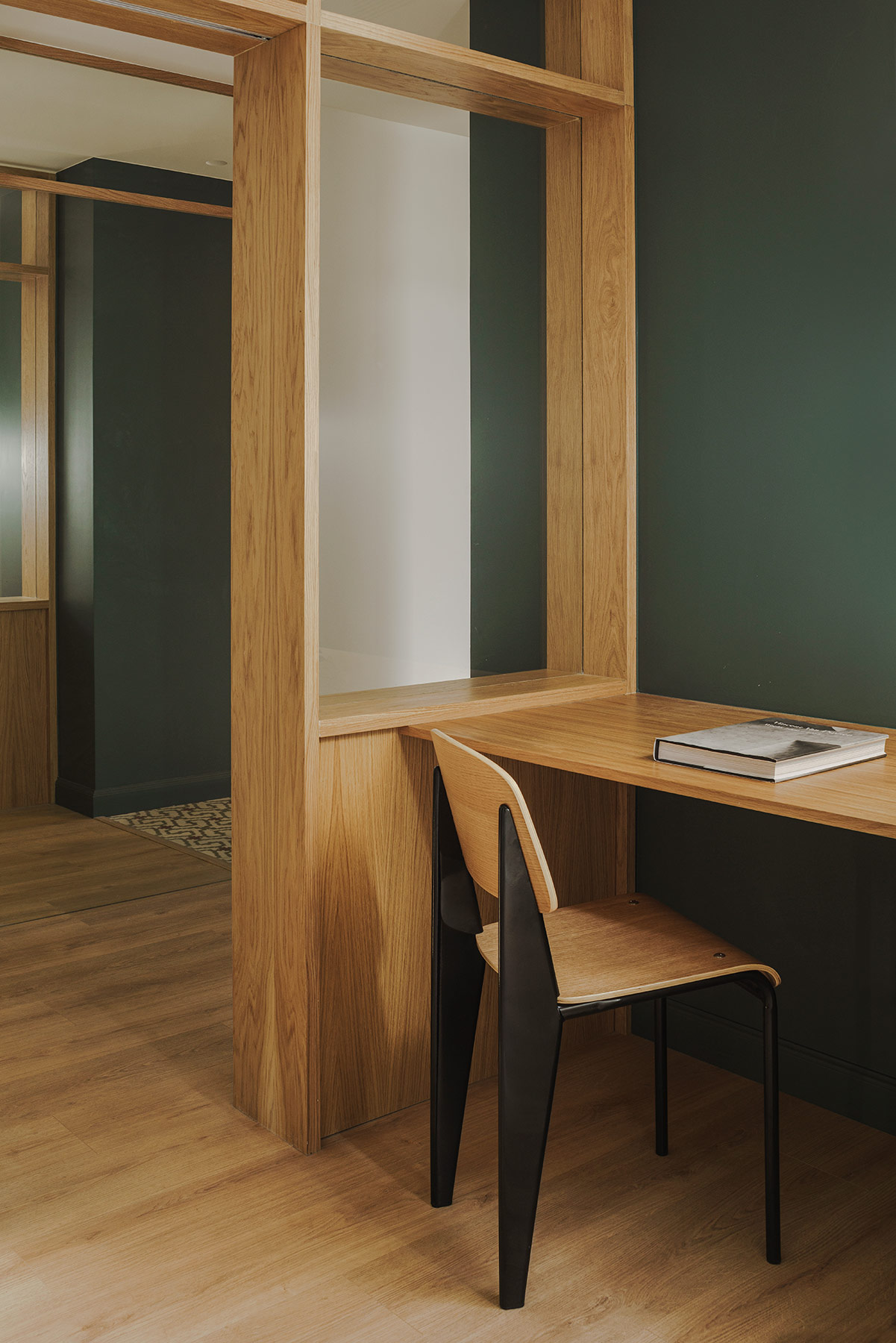
Layout
64% special doors
36% NO special doors

More than half of our renovations have integrated special partition doors. The flexibility of the home is an essential requirement to either create separation or achieve a more open space.
52% sliding
48% hinged
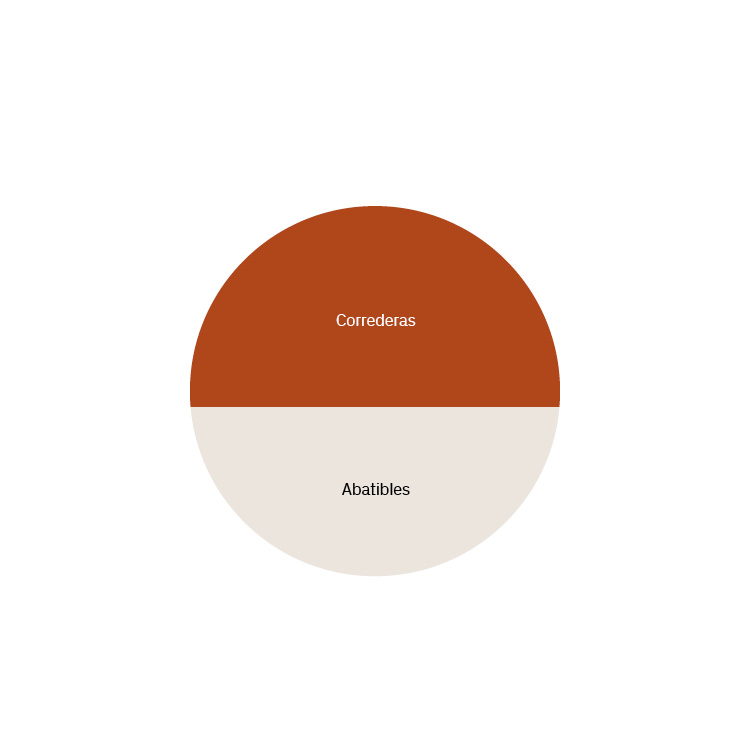
The distribution of door types remains quite even, varying depending on the level of privacy needed in the space.
74% remote work (2024)
26% remote work (2020)
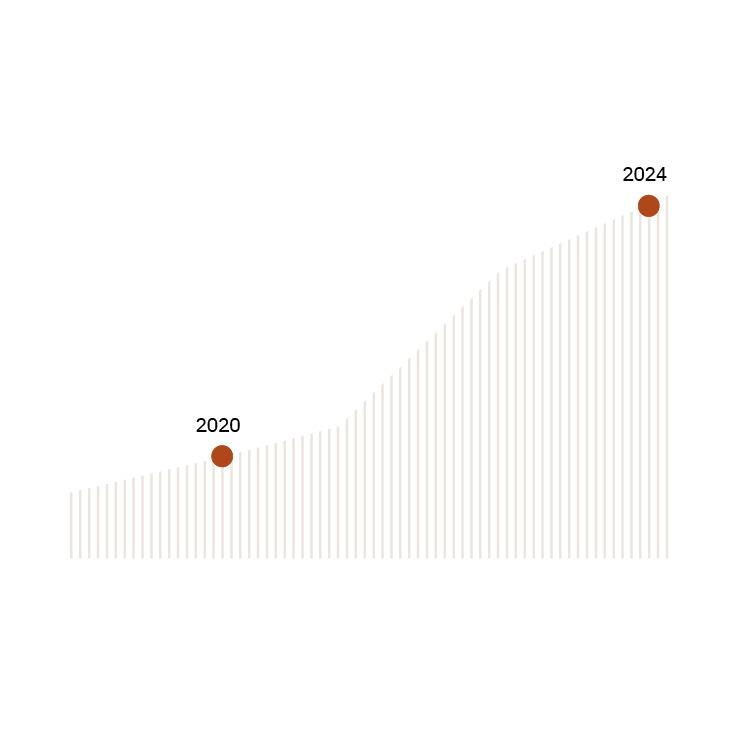
In recent years, especially since Covid, there has been a significant increase in dedicated spaces designed for working from home.
61% isla cocina
It remains a widely used resource, but the trend seems to have stabilized.
Sustainable

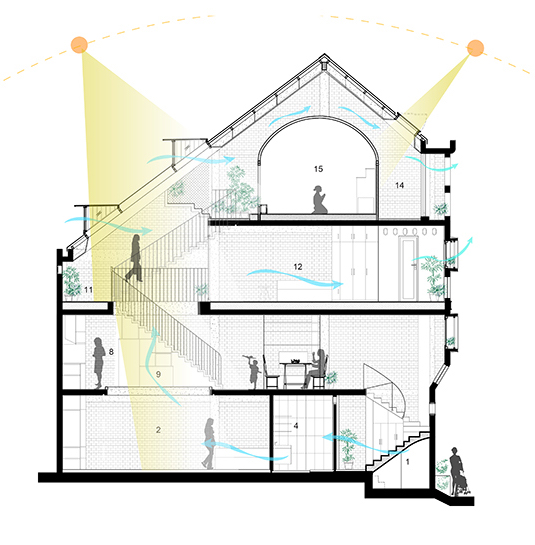
Sustainable
35,9%
carbon footprint reduction
Before the renovation, the homes generated approximately 4.37 tons of CO₂ per year (9,000 kWh of electricity and 1,200 m³ of natural gas). After the renovation, which included the installation of high-efficiency air conditioners, bioclimatic design, and improvements in insulation, energy consumption was reduced to 5,500 kWh of electricity and 800 m³ of natural gas. This decreased annual emissions to 2.80 tons of CO₂, a 35.9% reduction.
The total carbon footprint for carrying out a renovation is 18.55 tons of CO₂.
* values correspond only to two apartments which we had previous measurements before the renovation.
Interior air quality
The quality of indoor air and creating a safer and healthier environment for occupants has become a priority. Increasingly, we select products and suppliers based on their use of low volatile organic compound (VOC) materials, such as eco-friendly paints and sealants.
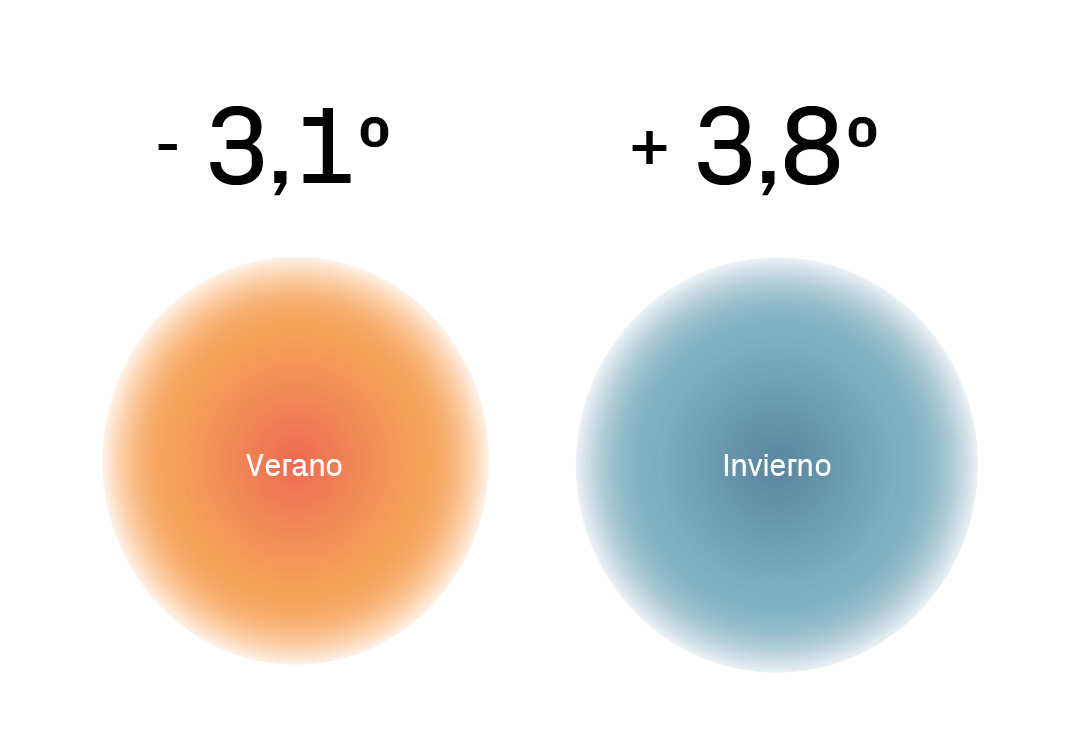
Thanks to the insulation of walls, windows, and ceilings, the temperature of the renovated space is improved compared to the exterior.
Impact on property value
+ 34,8%
A new value we have studied is the impact on property value following a well-executed renovation. Renovations not only aesthetically transform a home but can also significantly increase its value when they are well-designed and executed. In our recent projects, we have observed increases in property value of up to 34.8%.
For example, a property in the center of Barcelona with an initial value of €600,000 increased its value by €210,000, resulting in a total of €810,000. This demonstrates that investing in quality and design improvements is not only an investment in comfort and style but also in long-term financial value.
Conclusions
Driven by the analysis and innovation of processes, we aim to transform the way architecture is approached. Our projects strike a balance by combining aesthetics, functionality, and sustainability. Through creative solutions and innovative tools, we continue to move towards a future where spaces are not only beautiful but also efficient and environmentally responsible.
To learn more about how our projects can transform your home, book a call with us.
Related projects

